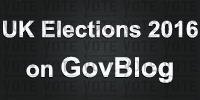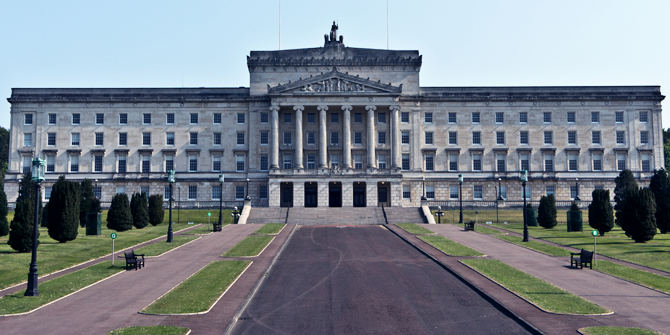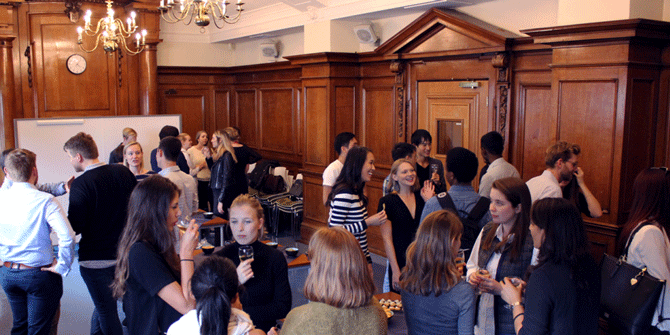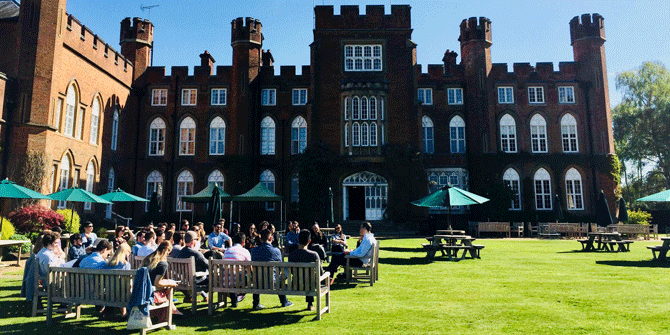In the run up to May’s Northern Ireland Assembly Elections, Matthew Whiting previews the contest and how voters’ motivations may be changing.
Transformative Elections?
Elections in Northern Ireland serve as a test of the transformative ability of the peace process. By looking at the salient issues within the electorate and the appeals the parties are making, it is possible to assess the degree to which political competition remains locked in forms associated with the conflict or whether it is moving away from these historical patterns. The forthcoming election to elect 108 members of the Assembly represents the latest such important marker.
On the surface, there is no noteworthy change in the major cleavage in Northern Irish politics. Protestants still vote overwhelmingly for Unionist parties while Catholics still vote overwhelmingly for Nationalist parties. Polling indicates that not much is likely to change in May 2016 compared to the 2011 election. The Democratic Unionist Party (DUP) and Sinn Féin will remain the two biggest parties and supply the First Minister and Deputy First Minister respectively, while the Ulster Unionist Party (UUP) and the Social Democratic and Labour Party (SDLP) will continue to play second fiddle to their historically more hardline rivals. Although a slight fall in support for the DUP and Sinn Féin is predicted, not too much should be read into this as the polls have a relatively high margin of error.
The influence of the electoral system
Another reason why many doubt that any substantive transformation is occurring in Northern Irish politics results from nature of the power-sharing arrangements. These incentivise political leaders to play up to the Unionist-Nationalist divide and to reinforce these divisions so as to shore up their electoral support. Yet perhaps this claim is somewhat overstated. There is some evidence that voters are using lower preferences to vote for parties from the “other side” of the divide, such as Protestants voting for the SDLP to keep Sinn Féin out in a seat they know a Unionist party cannot win.
Also the electoral system in Northern Ireland offers one of the lowest thresholds for a candidate to win office. Using the Single Transferable Vote system, Northern Ireland is divided into 18 constituencies, each electing six candidates. In 2011 a candidate in North Down only needed 4,015 votes to get elected and even the constituency with the highest quota, Fermanagh and South Tyrone, only required 6,858 votes. What is more, a party with as few as 10 members elected will probably gain some form of executive representation. This means that in 2016 the big four parties that represent the traditional cleavage will probably come under threat from smaller parties like the Alliance or UKIP, who claim to eschew traditional divides. However, it should not be forgotten that low quotas also allow niche parties like the Traditional Unionist Voice to prosper, a party whose hardline stance does anything but eschew the traditional divide.
A Fresh Start?
Further reinforcing the idea that that Northern Ireland is still not moving beyond its conflict-ridden history is the role of the legacy of the conflict as a contemporary political issue. Late last year the Assembly was thrown into a crisis on the basis of claims that the IRA was still active following the murder of a local Catholic man in an internal feud. This spiralled into a crisis when members of Sinn Féin were arrested as part of the police investigation. This led to both Unionist parties withdrawing from the Executive in protest at Sinn Féin’s ongoing alleged links to its past and mistrust of the possible influence of paramilitaries over the party. Although this was resolved with the Fresh Start agreement in November 2015, this did not actually deal with the legacy of the troubles but merely parked the issue. What is more, the UUP’s leader has stated that the party may refuse to take up its seats in the Executive after May and serve as an official opposition instead if they believe the other parties are not sincere in their commitment to peace. Plus ca change.
But in other important respects politics in Northern Ireland is coming more into line with that of the rest of the UK and it is no longer ‘a place apart’. Last year’s crisis was as much about welfare funding as it was about ongoing paramilitary violence. Republican violence was certainly the catalyst, but the threat of a decline in the levels of public expenditure was already shaking the foundations of stability. Northern Ireland, with its widely acknowledged overreliance on public sector resources, was set to be hit hard by austerity measures. Sinn Féin had put themselves at the forefront of opposing this (a tactic that has stood them in good electoral stead in the neighbouring Republic of Ireland). The DUP, whilst acknowledging the need for reform, also foresaw austerity’s negative impact on their working-class supporters. Agreeing welfare reform and securing extra public spending was the real breakthrough that led to the Fresh Start. Conflict over economic issues, even when underpinned by traditional divisions, is certainly more amenable to political bargains than zero-sum sectarianism. A great example of this is the fact that the DUP today may remain against North-South cooperation in principle, but they agree to it provided it saves money.
Beyond conflict
Other issues to the fore in this election also look decidedly similar to those in the rest of the UK – the economy, healthcare and the EU referendum. Incidentally, the DUP is the only major party in Northern Ireland urging a ‘leave’ vote in the EU referendum. Moreover, Teresa Villiers’s precarious position as one of Cameron’s pro-Leave cabinet members, while simultaneously being the Secretary of State for the UK region that has perhaps benefitted most from EU membership (through peace funds, CAP and the only direct border with a Eurozone economy) is often overlooked. Other issues that may matter in this election look decidedly Northern Irish, with abortion and gay marriage never too far from public debate. Yet even these issues do not fall strictly along the lines of community divisions (while the DUP’s conservatism can be juxtaposed to Sinn Féin’s liberalism, the SDLP tends to fall uncomfortably in between) and ‘social morality’ politics is very different than conflict and hostility.
New faces
Some of the old guard and those most associated with the conflict era of politics are retiring. Peter Robinson, a stalwart of the traditional DUP position, having stood down as First Minister is now standing down as an MLA, with Arlene Foster’s leadership being well received to date. On the other side, Mitchel McLaughlin for Sinn Féin is retiring. But before too much is read into the idea that there is a generational changing of the guard, often seen as essential for the long-term consolidation of peace agreements, many familiar faces remain as is evident from a quick review of Sinn Féin’s confirmed list of candidates to date.
Separate no more?
So Northern Ireland can be seen as being on the cusp. Although remaining separate from politics in the rest of the UK (except for the EU referendum), a new politics is coming to the fore with the relentless march of time – the economy, healthcare, and rights dominate and new representatives are emerging who do not have an automatic association with the Troubles. This is certainly not to claim that Protestants and Catholics are free-floating rational voters or that there are no deep political cleavages shaping party behaviour. Cultural markers of identity matter for voting behaviour and this does not look set to change any time soon. Yet perhaps this continuity masks a slower change in the nature of political competition. The campaigns in the run up to the election and the results in May will tell us more. But if it looks like the legacy of conflict is loosening its hitherto tight grip, then this could be of great importance both to those living in Northern Ireland and for those who look to power-sharing as a way to transcend conflict in the long-term.
 For the latest analysis of 2016’s electoral contests, go to UK Elections 2016 on GovBlog.
For the latest analysis of 2016’s electoral contests, go to UK Elections 2016 on GovBlog.
 Matthew Whiting is a Fellow in Politics, University of Reading
Matthew Whiting is a Fellow in Politics, University of Reading






